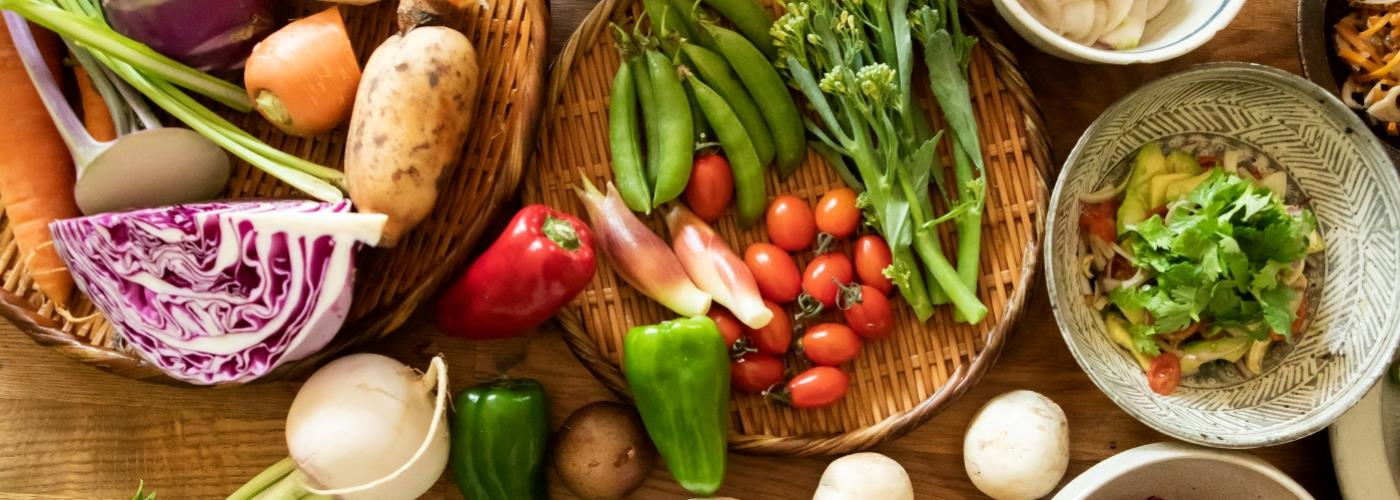Topics
Bones support your body and allow you to move. In addition to helping the body create various movements, bones function to protect the internal organs.
However, once you cross the age of 30, there are changes in bone mass as the body starts to replace old bones, often leading to osteoporosis (a condition that causes bones to become brittle).
According to a 2017 study, it has been estimated that more than 200 million people worldwide have osteoporosis. Thus, it is crucial to consume foods that build bone density and consequently support bone health.
Why is it important for bones to be healthy?
Like every living cell in the body, your bones are constantly changing. They undergo mineral loss and replacement on a daily basis.
The osteoclast cells help to restore minerals, and the osteoblast bone cells help to create new bone cells. It is believed that the adult skeleton is replaced approximately every ten years.
For youngsters, bone regeneration is faster than the rate of breakdown of the bones. This will help to increase bone mass. However, the process slows down as one ages. In fact, by the age of 30, most people reach their peak bone mass. This is why it is crucial to pay attention to our bone health.
Healthy bones help store nutrients such as minerals and protect our vital organs. If your bone health is poor, you may be at risk of fractures or even severe conditions causing limited mobility.
For those who do not achieve the requisite bone mass by the age of 30, osteoporosis could be a likely result. On the other hand, if you already have a higher bone mass in reserve, you are less likely to develop any bone-related condition as you age.
What types of food are good for bone health?
Here are some of the essential foods that help in improving bone health.
- 1. Foods rich in calcium
The fundamental building block of bone tissue is calcium. Calcium also plays a vital role in blood clotting, nerve signalling, and muscle function. Since the body cannot generate enough calcium, it should be supplemented through diet.
The daily calcium requirement for adults between the age group of 19 to 64 is 1000mg a day.
Foods abundant in calcium include dairy products such as milk, cheese, and yoghurt. In addition, green leafy vegetables, which are abundant in calcium, include spinach, broccoli, legumes, etc.
You could also consume calcium-fortified beverages and foods to get the required daily levels.
- 2. Foods rich in vitamin K
Studies have indicated a direct link between a lack of vitamin K and fracture risk, low bone mass and osteoporosis. Additionally, vitamin K also has antioxidant properties, which help to protect bone cells from damage.
Foods abundant in vitamin K include cauliflower, broccoli, spinach, and cabbage.
- 3. Foods rich in vitamin D
The sunshine vitamin is another essential nutrient for strong bones, teeth, and muscles. Vitamin D is a fat-soluble vitamin that helps regulate the immune system's functioning.
Another vital role of vitamin D in the body is to help calcium absorption, which is the fundamental building block of bones. Vitamin D is found in foods such as eggs and fish.
- 4. Foods rich in vitamin B
Vitamin B plays a significant role in various functions of the body. This includes maintaining healthy bone tissue and rebuilding the bones.
Common vitamin B sources include animal products such as fish and meat. It is also present in plant products such as peas, nuts, cereals, etc.
- 5. Good protein intake
A diet low in protein could result in BMD (bone mineral density) loss in adults, impacting skeletal growth. Foods rich in proteins include dairy products, meat, fish, soy, and eggs.
- 6. Foods high in magnesium
Just like vitamin D, magnesium also enhances calcium absorption in the body, promoting healthy bone development.
Foods with high magnesium content include spinach, almonds, soy milk, peanuts.
- 7. Foods rich in Omega-3 fatty acids
Scientific studies have revealed that Omega-3 fatty acids help keep the bones thick and robust by augmenting bone mineralisation and preventing bone decay.
Several health experts also believe that Omega-3 fatty acids aid in relieving joint pain because of their anti-inflammatory properties.
Some abundant sources of Omega-3 fatty acids are seafood such as salmon, tuna, sardines, and mackerel. It is also present in low amounts in seeds such as walnuts, chia seeds and flaxseeds.
- 8. Foods high in zinc
Zinc is an essential mineral that helps in bone regeneration, skeletal growth, and homeostasis. Some important sources of zinc include lobster, nuts, dairy products, whole grains, and cereals.
What are the foods to avoid for good bone health?
Although people are aware of the foods which help bone growth, did you know that certain foods can affect your bones negatively?
- 1. Food high in salt
Salty food may interfere negatively with the body's ability to absorb calcium. This is because salt controls the amount of calcium in the urine. As calcium is essential for bone strength, having excessive salt in the body could result in bone weakness.
Foods that are high in salt include chips, pretzels, pizza etc. Make sure that you consume these in moderation.
- 2. Excess use of alcohol
Excessive consumption of alcohol hampers bone health by reducing bone density and interfering with the bone's mechanical properties.
People who take more than two units of alcohol per day are at a higher risk of suffering fragility fractures. More than four units can double this risk. If you are someone who cares for your bone health and wishes to drink, the answer is moderation.
- 3. Excess use of caffeine
Studies have indicated that excessive caffeine consumption reduces bone mass and increases the risk of fractures. In addition, excessive intake of caffeine could also increase faecal and urinary calcium loss, posing a threat to bone health.
- 4. Foods high in sugar
Foods with high sugar content, such as sports drinks, soda, chocolate, fizzy drinks etc., are linked to osteoporosis. A highly sugary diet is linked to calcium and vitamin D deficiency, triggering high glucose levels in the body and impairing bone formation.
In summary, essential points to keep in your mind are:
- Avoid food which is high in salt or sugar content.
- Regularly consume foods that are rich in vitamin D, magnesium, calcium, and vitamin K.
- Exercise regularly.
- Minimise caffeine consumption.
- Make sure to expose yourself to sunlight for a minimum of 20 minutes daily. Sun exposure between 10am and 3pm provides sufficient daily vitamin D.
- Avoid excessive consumption of alcohol.
How to check your bone health?
A DEXA/bone density scan can quickly determine your bone health. This is a low-intensity X-ray scan that evaluates the amount of calcium present in the bones.
Bone density indicates the thickness and strength of the bones. Methods such as X-rays, dual-energy X-ray, X-ray absorptiometry etc., are used to determine the bone density of the hip or spine.
Bone health screening in Malaysia
The primary aim of bone health screenings is to diagnose bone-related ailments, such as disorders in muscles, joints, ligaments, and tendons, to prevent diseases such as osteoporosis.
Periodic health screenings are recommended for postmenopausal women who are less than the age of 65 to understand the risk of fractures.
Make an appointment at Pantai Hospitals
A dedicated and expert team of Orthopaedic specialists at Pantai Hospital is available for consultation to provide the best care possible.
Get in touch with us to book an appointment today for a DEXA scan to assess your bone density, and consequently, bone health.
Pantai Hospitals have been accredited by the Malaysian Society for Quality in Health (MSQH) for its commitment to patient safety and service quality.













